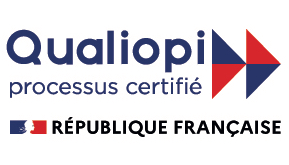French can be a tricky language for English speakers to learn for a variety of reasons, and there are a number of common mistakes that beginners often make. Making a blunder by getting a word wrong can be very embarrassing in a social situation, but it often happens and is nothing to worry about. Native French speakers will make allowances for you and be pleased to see you are making the effort to learn their language.
What are some of the most common mistakes that are likely to be made? Let’s take a look.
False Friends (“Faux Amis”)
If you are studying French, at our French language school perhaps, you may well hear your teachers talking about “false friends” that you have to look out for. The term doesn’t mean deceptive people but words that look the same in both English and French, which gives you the idea that they are used the same way. Sometimes this is true but not always, and you need to learn the meanings for all the “false friends” in the French language. It can be very confusing and the context of a situation may not help.
For example, you might hear someone say they have no monnaie but go on to pay a bill with paper money. Monnaie sounds like the English word money but in French it means loose change. To make it even more confusing a coin means a corner!
Getting the gender right
In English you don’t need to worry about the gender of a word. Inanimate objects have no gender and anything that is alive is male or female, and may well have a word designating its sex. This is not the case in French though, where all nouns are either masculine or feminine and have corresponding definite and indefinite articles before them. An apple in French is feminine and would be une pomme but a book is masculine and would be un livre.
Saying “my friend” in French
If that isn’t confusing enough, the seeming simple saying “my friend” in French has a unexpected twist. The possessive pronoun used with a feminine singular noun is usually ma, however, this is not the case with feminine words that begin with a vowel. These nouns take the masculine mon before them. Ma amie (referring to a woman friend) would be wrong but mon amie would be right.
Where do the adjectives go?
In French you learn that unlike in English, the adjectives go after the word they are describing, but this is not always the case. A handful of adjectives are placed before the noun, and you need to remember which ones. The ones that go in front are bon, mauvais, petit, grand and joli.
The last two can cause confusion in another way. In French, the word grand just means big. It doesn’t mean impressive. If you wanted to describe a house, for example, and were trying to convey how impressive it was, you would use grandiose not grand. So it would say une maison grandiose.
In the case of the adjective joli, it means pretty, and not jolly, even though it resembles this English word.
If you are a beginner, you are sure to make mistakes when learning French, but practice makes perfect, and the more you learn the more fluent you will be.



